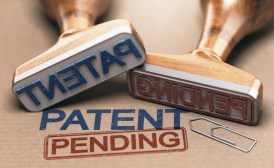DIU awards Army contract to advance RPA using machine learning

The Defense Innovation Unit selected Boston-based AI company DataRobot to help the Army use machine learning to boost the power of its robotic process automation (RPA)in financial accounting.
The contract, which was initially solicited back in May, advances the Army’s use of RPA into more complex problem solving areas. Traditional RPA can only do simple, pre-programmed tasks, but adding machine learning from DataRobot allows the RPA to “think” through more complex problems. The Army and other services have used financial management and other lower-risk problem sets as a starting point for many of the more advanced data analytic technology the military hopes to one day use in warfighting.
“The intersection of RPA and AI — what we call Intelligent Process Automation — can unlock increased efficiencies that have the power to transform organizations,” Chad Cisco, general manager for DataRobot’s federal market, said in a release.
DIU’s solicitation, which was issued in partnership with the Joint Artificial Intelligence Center, aimed to expand the use of RPA into territory that requires more artificial cognition. DIU was not looking for a cloud service provider or new RPA — just a platform that will simplify data flow and use open architecture to leverage machine learning, according to the solicitation.
“The ML platform will identify and suggest corrections to business processes that are not limited to previously well-defined business logic methods,” the solicitation stated.
DataRobot said in its release that by integrating existing RPA into its AI platform, the company hopes to save DOD time and money by reducing the number of miss-matched financial transactions. The Army’s hosts some of the largest financial management systems in the world that track billions of dollars a day. The department recently migrated much of its data and services to the cloud, enabling greater use of RPA and machine learning systems.






